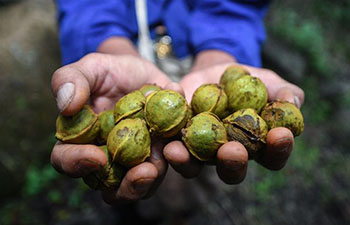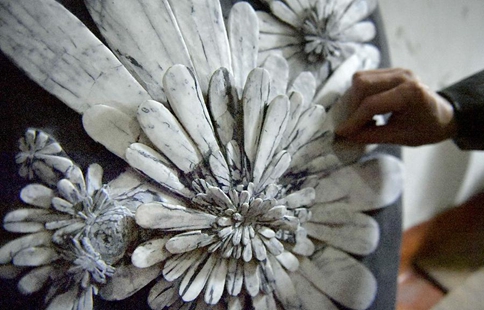SAN FRANCISCO, Sept. 7 (Xinhua) -- A new study has identified a protein that links alcohol consumption with structural changes in one of the "reward centers" in the mouse brain.
Published online Thursday in Neuron, by researchers at University of California, San Francisco, or UCSF, casts new light on the molecular domino effect by which alcohol triggers long-lasting changes in brain cells that drive heavy drinking.
Alcohol remains a mysterious drug on a scientific level. Researchers still don't know how ethanol - a tiny molecule that, unlike all other drugs of abuse, does not have a specific site of action - can alter brain function to promote compulsive, uncontrolled consumption and alcohol-seeking despite negative consequences.
Previous work in rodents by the lab of Dorit Ron, professor in UCSF's Department of Neurology and the new study's senior author, and others has suggested that a protein by the name of mTORC1 may be a key mediator of addiction to multiple drugs of abuse, including cocaine, morphine and alcohol. Her lab has shown that excessive drinking boosts mTORC1 activity in the nucleus accumbens, an important part of the brain's reward circuitry, and that this increased mTORC1 activity is associated with alcohol-seeking.
These findings suggested that mTORC1, the normal function of which is to promote the synthesis of new proteins, might trigger structural changes in the nucleus accumbens that reinforce positive associations with alcohol, contributing to the cycle of excess drinking.
In the new study, postdoctoral associate Sophie Laguesse, and her colleagues in the Ron lab used a technique called RNAseq to hunt new proteins that might be linked to mTORC1 activity in the mouse brain in response to alcohol. Of the 12 proteins they found, the researchers focused on one called prosapip1, and found that this protein changes the structure and activity of neurons in the nucleus accumbens after mice drank alcohol for a long time.
When the authors genetically blocked the production of prosapip1, these alcohol-dependent changes were significantly reduced; and when offered a choice between alcohol and water, mice in which prosapip1 was blocked reduced their preference for alcohol. In addition, the mice's consumption of sugar water, normally very rewarding, was not affected by blocking the protein.
"We have identified a new protein that plays a crucial role in changing the landscape of neurons in the nucleus accumbens, which then leads to escalation of problem drinking," Ron was quoted as saying in a news release from UCSF. "These findings open up research into the protein' s role in neural plasticity, and also into how alcohol and other drugs of abuse alter our brains."

















